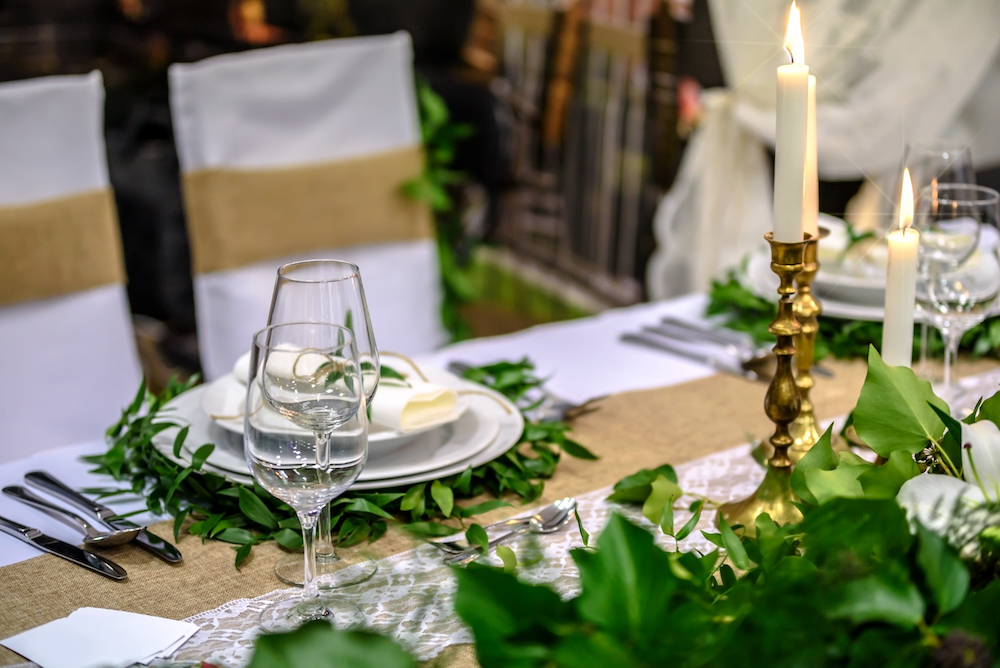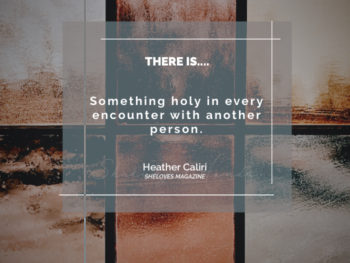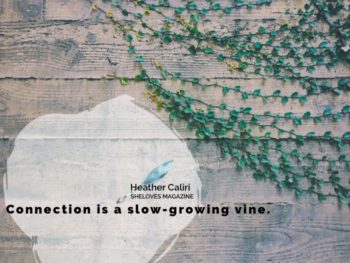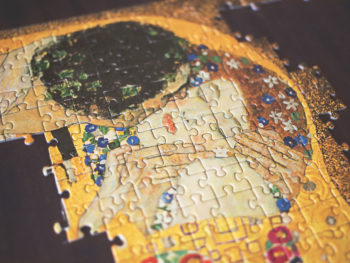
My friend Jenna and I were chatting via email the other day, and she said I might want to write about this holiday phenomenon: “sitting at the table and breaking bread with those who have wounded us or settled us with emotional baggage or sent us into adulthood with stuff we’ve had to work through … in other words, family.”
I’ve been mulling over that idea for a few days, and I thought I’d write this.
Right now, several members of my family and extended family don’t speak to each other. We’ve got voters from all over the political spectrum seated together. I feel at peace about my family relationships, this year more than ever before, but that doesn’t mean family doesn’t ache.
When the check-out guy at Trader Joe’s asked about Thanksgiving, and heard how many of my family would be there, he said, “Just a small gathering, then?”
I thought of all the people who will be missing at my holiday table. Missing because of deep hurt and trauma and misunderstanding. Missing, most of them, for decades.
It’s a grave thing to sit down and break bread together. In some families, it is a miracle; in others a curse. I do not underestimate the pain of sitting and eating alongside people who have harmed you, who dismiss your pain, your history. Who silence and intimidate. It is bitter sauce to put on top of your stuffing.
Can I suggest a question to consider about your upcoming family gatherings? It involves my very favorite quote from a man named Bruce Kramer. It upended my life for the better.
How shall we grow into the demands of what is beyond us?
Our families are beyond us. They are a mix of complicated, people, the past, hurt, love, and habit. Knowing my family was beyond me convinced me I had no power, no voice, no way to change what was clearly above my pay grade.
(I even convinced myself that my peacemaking and silence was a mark of maturity).
I was wrong. I was so so very wrong.
We can grow into those demands. We can pay attention, experiment, try. We can get counsel and pray and speak.
Yes, your family is beyond you, beyond ‘saving’, (if by “saving” we mean a tidy fix that one person is capable of.)
Yes. It’s true.
So what?
YOU, you are a part of your family, and YOU are key, and YOU are perfectly capable of growing into the demands you’re faced with. You are capable of change and kindness and new beginnings. So how will you grow into the demands your family presents you with?
Ask yourself, when you sit down, two questions.
- What are the demands you face?
- What kind of person do you want to grow into—and what would that person do?
What is the very first, most minuscule step you can take as you sit down at table with these complicated beloved creatures God entrusted you to?
Here are a few ideas:
- You could notice your bitterness or cynicism.
- You could refrain from engaging in gossip.
- You could keep yourself from butting in.
- You could say out loud when you feel uncomfortable.
- You could hold your tongue.
- You could ask questions.
- You could affirm beauty and loveliness when you hear it.
- You could pray in your head as you listen.
- You could consider your boundaries and how to guard them.
- You could limit the time you expose yourself to toxic people.
- You could be very clear about why you’re leaving when you do.
- You could practice assuming the best of each person at the table.
- You could hold them accountable when they hurt you.
- You could stop holding your tongue out of fear of what will happen.
- You could pray for kindness any time you speak.
When you consider your family, and feel stuck and out-of-your depth, I have very good news. You’re not alone, and you’re not doing anything wrong. Family is hard and bewildering and frustrating and imperfect.
So do the next brave thing, as Glennon Doyle Melton says. Be prepared for the demands at table, if you can anticipate them. And then pray for the bravery to take intentional action.
Get some counsel first if it’s scary or confusing. But do it. Don’t wait, don’t excuse, don’t tell yourself you’re making a mountain out of a mole hill.
All mountains begin as mole hills. They all do (Geologists: stay with me here. It’s a metaphor). And every single one of mountain, no matter what size, can be moved by a mustard seed.
Every family gathering is a chance to start growing into the demands of your role. Take it seriously. Pay attention. Be kind. And be fiercely resolute in becoming whole.












 3 Questions to Simplify Holiday Dysfunction: For No Sidebar
3 Questions to Simplify Holiday Dysfunction: For No Sidebar
Thanks for sharing your personal family journey with your readers. My clan all pretty much agrees politically (which can be decidedly boring?) but many of them live far away and we don’t have the privilege of coming together on a regular basis. I’ve learned to value any time we find together and can’t imagine politics keeping us apart. Our few gatherings are too valuable. So, I appreciated your piece offering a different story. Great ideas for breaking the silence too.
Yeah, it can be good to decide not to let politics divide precious relationships–though I feel sympathy for those for whom that’s not an option (say, if political disagreement intersected with boundary crossing or past abuse).
<3 Thanks, friend. One thing I'm learning in this area with those who disagree with me (especially online) today is a series of questions to ask myself: 1. where is this conversation going/what are my goals in responding? 2. Are those goals for where I want this conversation to go realistic and beneficial (i.e. is there any good likely to come of it)? 3. If the answer is no, maybe it's not worth expending emotional energy on and it's something I can walk away from with an "agree to disagree," especially if I did my best to speak up and am not being heard (read: the person I'm talking to is not at the moment in a place to hear my perspective, but it doesn't mean I write them off forever as hopeless. haha)
YES! So wise. Figuring out what we really want, and what is realistic is a super-helpful place to start. And it helps us be an agent of love and peace no matter how tough the relationship is.
Exactly!